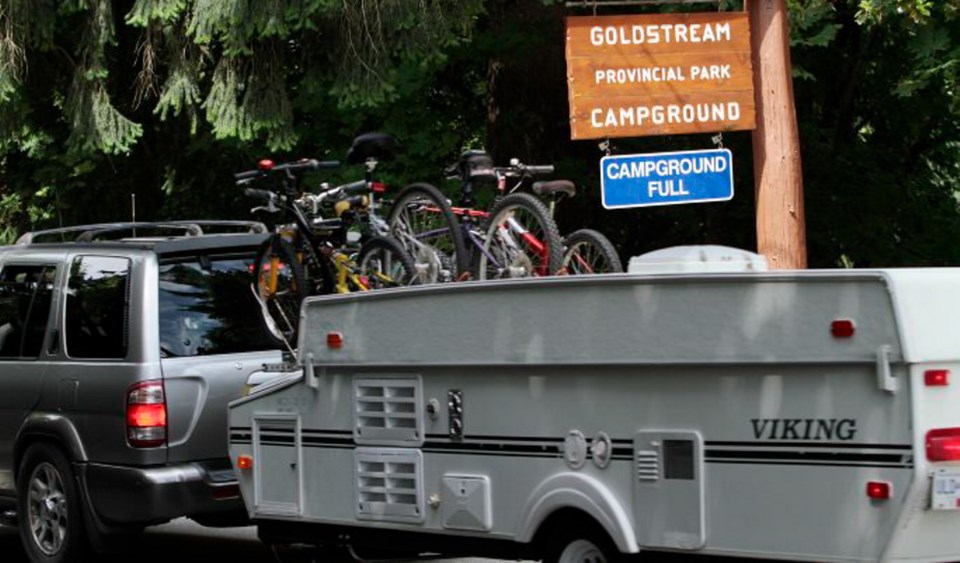The B.C. government announced changes to its camping reservation system Monday in an attempt to close loopholes and free up sites for more people.
Changes include measures to prevent overbooking and resale of reservations, as well as a pilot project in some parks to limit maximum stays to seven days.
The moves come in response to complaints by campers frustrated by a lack of available sites and allegations that people were scalping reservations.
“Everyone knows that there are a limited number of campsites; they want to know that they’ve at least had a fair crack at it, right?” Environment Minister Mary Polak said in an interview. “We’ve done a number of things to get at that.”
The changes take effect Jan. 2, 2017.
They include:
• Eliminating the mid-March opening day for reservations and extending the rolling reservation window from three to four months in advance of the first reservable date. The change is expected to end the opening day rush because the first reservable date varies by campground.
• Thwarting reservation resellers by preventing permit holders from changing the name on their reservation. One of the permit holders for a site will have to be present during the stay and may have to show identification. B.C. Parks says it detected 46 attempts to resell reservations in 2016
• Curtailing overbooking by restricting a reservation holder’s ability to change their arrival date. The province says overbooking was increasing and affected about one per cent of the record 185,000 reservations to mid-September.
• A pilot project to shorten the 14-day maximum stay policy to seven days in five high-demand parks, including Loveland Bay near Campbell River. The change is expected to free up 1,000 nights for other campers in peak season, Polak said.
• Expanding the call centre hours for the Discover Camping reservation service from 7 a.m. to 7 p.m. daily.
George Heyman, the NDP’s spokesperson on environmental issues, said the changes were long overdue.
“We’ll see if these measures work, but I’m happy to see the government finally do something,” he said. “I’m definitely concerned that British Columbians appear to have to fight their government tooth and nail to get even simple issues like affordable family vacations in public parks addressed.”
B.C. Green Party Leader Andrew Weaver said the success of the changes will depend on the level of follow-up. “The problem is that historically there’s been a lack of enforcement,” he said.
Joe Foy, national campaign director for the Wilderness Committee, said the problems with reservations are a side effect of too few campgrounds in B.C.
“We would support things that make it possible for people to use the parks, but we think that the provincial government should be working on expanding the amount of campgrounds that people have access to,” he said.
Polak acknowledged that the government will need to look at expansion in order to deal with demand issues, but said it requires more study.
“One of the reasons it’s challenging is because the very places where we would like to be able to add sites are in fact the very places where there’s very limited availability of land,” she said.
The province says B.C. Parks manages about 10,700 campsites of which 55 per cent are reservable and the rest remain on a first-come, first-serve basis.



